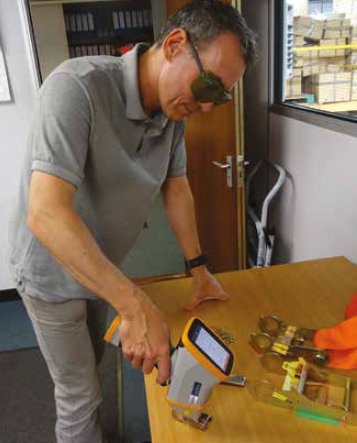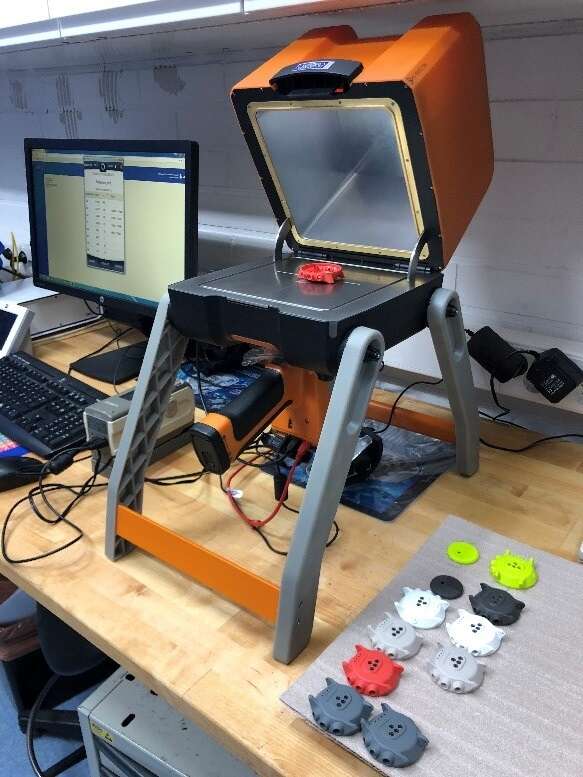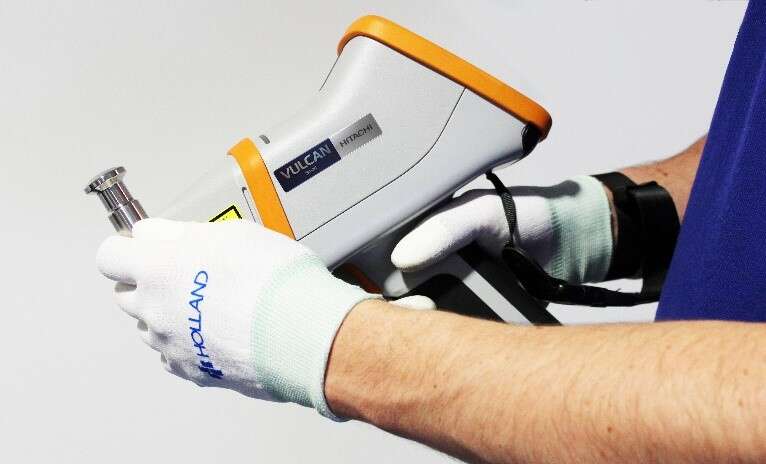We’ve talked a lot about the trend for 100% PMI (positive material identification) testing as manufacturers want reassurance on quality to protect their reputation.
As the supply of metal alloys becomes more complex, the actual composition of procured materials becomes increasingly uncertain. This puts more pressure on companies to ensure that they demonstrate processes for quality control and material verification.
Material mix-ups, forged certificates and just getting the wrong alloy from a supplier are becoming more common. So verifying that the alloy used is correct is becoming vital and reasons to do it range from ensuring correct grade name, expected elemental composition to presence of impurities (unwanted elements).
We’ve discussed about how to get metal quality control in manufacturing right and even done a webinar on making the transition to 100% PMI without adding a significant cost to your business.
Today, we share three stories that show how our customers have avoided – or resolved – serious quality issues thanks to PMI testing for quality control and assurance with Hitachi High-Tech handheld analyzers.

UK firm GT Factors make ratchet restraining straps for securing freight. To meet specification and resist early corrosion, the restraints must be made from marine grade 316 stainless steel. It was actually during a product demonstration of Hitachi High-Tech’s Vulcan analyzer that the company discovered that the stainless steel grade from a new supplier was actually the sub-standard 304 grade.
Use of this mis-labelled steel in production could have been catastrophic, potentially causing a serious accident and damaging GT Factors’ reputation. This situation was avoided with a simple one second testing with the Vulcan; a test that GT Factors now carries out on all incoming stainless steel.

Finnish company Suunto make sports watches, diving computers and orienteering compasses. Suunto were experiencing problems with the laser printing process on the back of the sports watches’ cases. The printing was uneven and of poor quality. A visual inspection didn’t help, the cases – provided by a sub-contractor – looked fine. To find the root cause of the problem, a more in-depth investigation was needed and that’s when Suunto worked with Hitachi High-Tech.
Hitachi recommended the use of the handheld X-MET8000 XRF analyzer. The X-MET quickly discovered that the pigment level in the injection moulded watch case varied and areas of low levels of pigment corresponded with areas of low printing quality. Suunto addressed this with the sub-contractor and they’ve improved the mixing process of the watch case, and the problem has been resolved. The X-MET has since been incorporated into their quality control processes.

Another UK-based company, I Holland, supplies steel dies and punches to the pharmaceutical industry to manufacture tablets. I Holland have to analyze every tool to make certain of the correct material composition before sending the parts to their customers. With parts shipping across the globe, receiving parts from many suppliers, and customers sending worn punches back for analysis, I Holland were faced with a mounting and serious part-sorting challenge.
They approached Hitachi High-Tech and were sent a demo handheld Vulcan analyzer to try. The fast analysis time allowed the team at I Holland to sort the parts quickly and now the Vulcan is in use every day at the production site. I Holland are able to be absolutely certain of the grade and composition of the tools they provide into the pharmaceutical industry worldwide.
Read full case study
These examples highlight why moving towards 100% PMI is becoming crucial if you want to maintain quality standards.
Hitachi High-Tech’s range of handheld LIBS and XRF analyzers means you can make sure the alloy grade is correct and the material is suitable for use, ensure the alloy has the expected chemical composition, and verify the presence of impurities that may cause early failure or not comply with legislation.
Want to read more customer success stories from us? Visit our downloads page or watch our testimonial videos
For more information on Hitachi High-Tech’s Vulcan and X-MET ranges of handheld analyzers for PMI testing and incoming materials verification, get in touch for a quote.